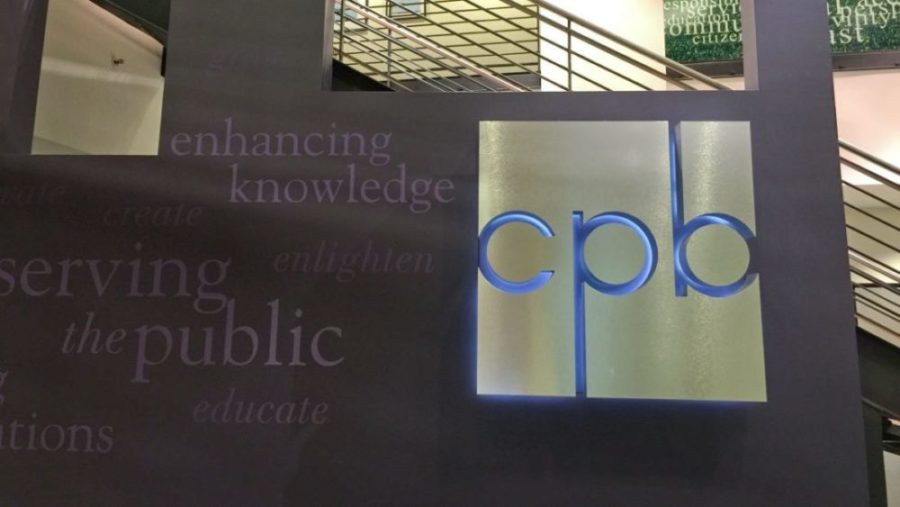New CPB chair sees watershed for public media
 Maybe we’re at a 1967 moment again,” says Ernest Wilson III, shortly after his election as chair of the Corporation for Public Broadcasting on Sept. 16 [2009].
Maybe we’re at a 1967 moment again,” says Ernest Wilson III, shortly after his election as chair of the Corporation for Public Broadcasting on Sept. 16 [2009].
He’s making a hopeful comparison with the year when a Carnegie Commission report slid into President Johnson’s in-box in January and returned for his signature as the Public Broadcasting Act in November.
Wilson, who is dean of the Annenberg School for Communication at the University of Southern California, admires the way the stars are aligning for an advance of federal policy on public media:
Foundations are examining the plight of journalism and reengaging with public media. Congressional leaders are supportive. At hand are new media technologies “that are the fulfillment of everything that public-service media have been waiting for,” Wilson says.
If political will is mobilized, “we can provide the American people with the public-service media they deserve.”
Success “hinges on one thing—how well we’re telling our story,” Wilson says. “We’ve got to be able to define what is our value to the American people. That’s got to be the starting point.”
Wilson says the conversation has been going on for months with top leaders in NPR, PBS and stations, especially in a series of meetings convened by CPB and facilitated by the Aspen Institute Communications and Society Program.
The Aspen talks have been “the most frank and honest and open and tough discussions . . . about the future of public broadcasting” in his nine years on the CPB Board.
“We’re looking at a number of projects right now, very concretely, working with foundations like Ford and Knight,” Wilson says.
Wilson says he’s proud the Aspen meetings already have prompted a fast-turnaround PBS inquiry into the future of public TV in journalism, led by network news veteran Tom Bettag and funded by the Pew Charitable Trusts. However, he expects its proposals, not yet made public, will be opposed as too centralized.
The new chairman wants CPB to play a role in moving the policy discussion. “It is our imperative and it is our opportunity to help convene discussions like this,” he says. But the direction and outcome “shouldn’t be determined on 9th Street” — at CPB headquarters in Washington. He wants community groups to join in deliberations — and for more focus on local-level media.
He’d like to “help enhance the ability of Jackson, Miss., to do a better job of collecting the news, based in the local community.”
Talks could be organized around a range of models proposed for public media, Wilson suggests. “Let’s see if we can reduce the proposals kicking around to three or four.”
He stands by the values of excellence, innovation and diversity that are familiar in pubcasting rhetoric, and wants to add the populist element of citizen media-makers to professional producers and journalists. “That’s our niche-high-quality, noncommercial,” Wilson says, regardless of whether it’s produced by professionals or curated from the work of nonprofessionals.
Wilson, a Democrat, becomes CPB chair shortly after the change of partisan control in the White House, following Republican members who held the board majority and the chair through the core of the Bush years. Last week’s vote was unanimous, according to CPB. Beth Courtney, head of Louisiana Public Broadcasting, was elected vice chair last year after being previously defeated for the post.
Though he’s probably seen a lot of party-line struggling in his nine years on the board, Wilson isn’t interested in attempting to change the White House appointment process for CPB, which guarantees board members to both major parties. Wilson would like to see an insistence on appointment of CPB Board members who bring “experience in some substantive area,” but he doesn’t expect Congress would reform the appointment process. “Neither party is going to vote to deny itself the possibility of appointing people to boards and commissions,” he explains.
Wilson is a specialist in international communication who held senior positions in the U.S. Information Agency and the National Security Council and who has written about global Internet governance, the role of IT in development, among other topics. He co-edits the MIT Press series The Information Revolution and Global Politics.
He served on the faculties of the universities of Michigan, Pennsylvania and Maryland before his hiring by USC in 2007.
Wilson in his second six-year term on the CPB Board, appointed to the first by President Clinton and the second by President Bush.
Correction: This article corrects an error in the print edition, which said Courtney was defeated in the 2008 board election for vice chair.







